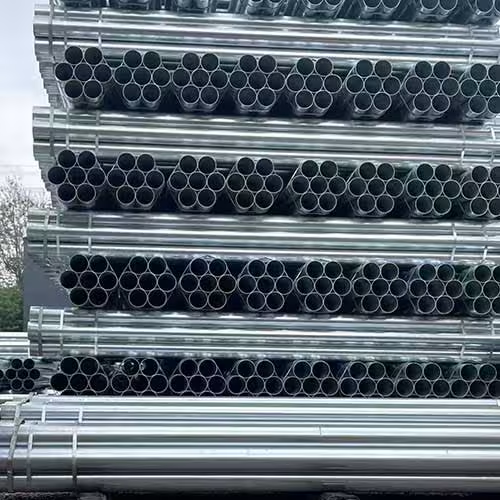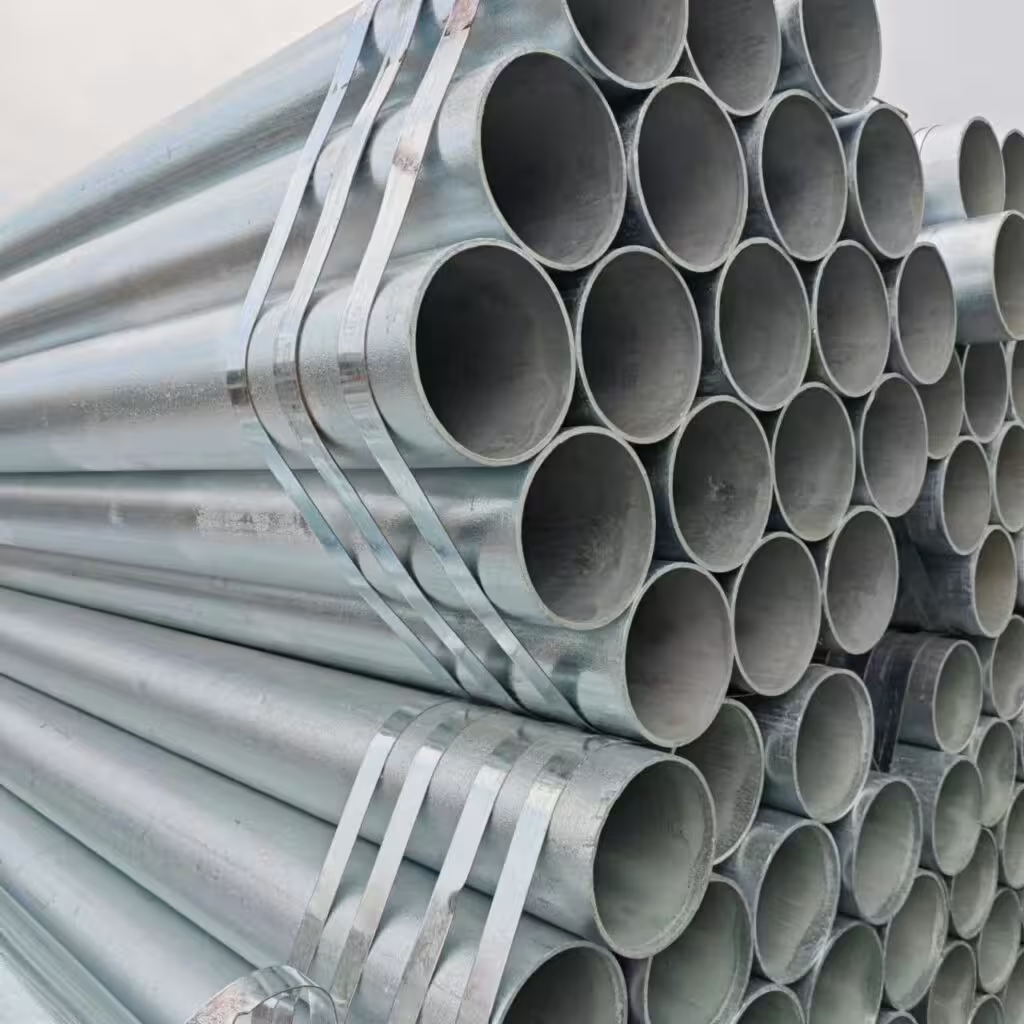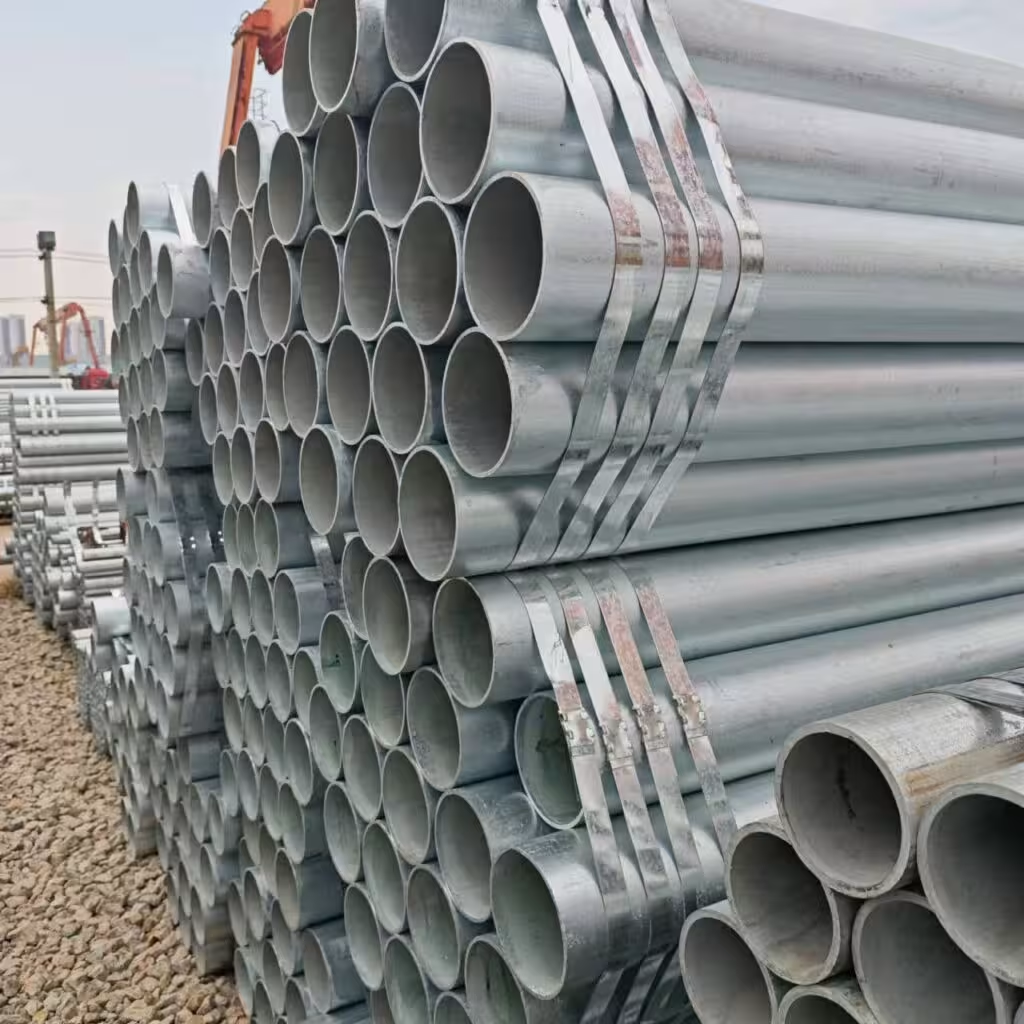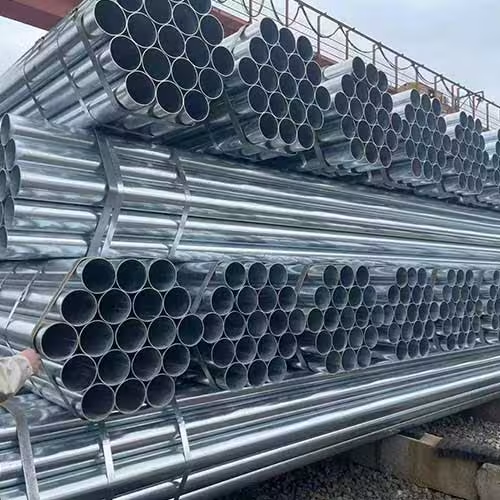Welcome to My Blog!
Before we dive into the content, I’d love for you to join me on my social media platforms where I share more insights, engage with the community, and post updates. Here’s how you can connect with me:
Facebook:https://www.facebook.com/profile.php?id=61565500692293
Now, let’s get started on our journey together. I hope you find the content here insightful, engaging, and valuable.
Table of Contents
Introduction

Galvanized pipes are widely used in industrial applications due to their durability, corrosion resistance, and cost-effectiveness. These pipes are coated with a protective layer of zinc, which helps prevent rust and extends their lifespan, making them suitable for a variety of industries. From water distribution systems to construction frameworks and oil transportation, galvanized pipe uses cover a broad range of applications that require strength and longevity.
This article explores the key benefits of galvanized pipes, their common industrial applications, and the factors to consider when selecting the right type for specific needs.
Why Use Galvanized Pipes in Industrial Applications
Galvanized pipes provide several advantages, making them an ideal choice for industrial settings.
- Corrosion resistance ensures longevity even in high-moisture environments
- Strong structural integrity allows for use in heavy-duty applications
- Long lifespan reduces the need for frequent maintenance and replacements
- Cost-effective compared to stainless steel while providing similar durability
- Versatility makes them suitable for plumbing, construction, agriculture, and oil and gas industries
Common Industrial Applications of Galvanized Pipes


Water and Plumbing Systems
One of the most common galvanized pipe uses is in water supply and plumbing systems. While they were historically used for drinking water, newer alternatives like PVC and copper have replaced them in many residential applications. However, they remain a reliable option for industrial and fire sprinkler systems.
Applications:
- Fire protection systems
- Industrial water distribution
- Wastewater and drainage systems
Benefits:
- Resistant to rust and water corrosion
- Suitable for high-pressure water flow
- Stronger than plastic pipes for heavy-duty use
Structural and Construction Applications
Galvanized pipes are commonly used in the construction industry for their strength and resistance to weather conditions. Their ability to withstand environmental exposure makes them ideal for structural frameworks and outdoor installations.
Applications:
- Support structures in buildings and bridges
- Scaffolding in construction projects
- Fencing and safety railings
Benefits:
- High load-bearing capacity
- Corrosion resistance for outdoor environments
- Long-term durability for large-scale projects
Manufacturing and Industrial Facilities
Many industrial facilities use galvanized pipes for their mechanical properties and resistance to chemical exposure. These pipes serve various functions, from transporting materials to providing support structures.
Applications:
- Exhaust and ventilation ducts
- Pipe supports for machinery
- Chemical processing systems
Benefits:
- Withstands high temperatures and chemical exposure
- Minimal maintenance required
- Provides structural reinforcement for heavy equipment
Agriculture and Irrigation Systems
In agriculture, galvanized pipes are used extensively for water distribution, greenhouse irrigation, and livestock enclosures. Their ability to withstand outdoor exposure makes them an ideal choice for farming applications.
Applications:
- Irrigation and drainage systems
- Fencing for livestock and crops
- Greenhouse water supply networks
Benefits:
- Prevents rust and contamination in water systems
- Long-lasting performance in outdoor settings
- Easy to install and replace when needed
Oil and Gas Industry
The oil and gas industry relies on galvanized pipes for their strength and resistance to harsh conditions. These pipes are used in transporting petroleum products and constructing infrastructure for drilling and processing.
Applications:
- Casing for underground pipelines
- Support structures for oil rigs
- Gas and crude oil transportation
Benefits:
- Resistant to corrosion in harsh chemical environments
- Strong enough for high-pressure applications
- Ideal for long-distance transportation of fuels
Comparison of Galvanized Pipe Uses in Different Industries
| Industry | Common Applications | Key Benefits |
|---|---|---|
| Water and Plumbing | Fire protection, drainage, water transport | Corrosion-resistant, high-pressure durability |
| Construction | Scaffolding, structural frameworks | Strong load capacity, weather resistance |
| Manufacturing | Ventilation ducts, machinery support | Chemical resistance, minimal maintenance |
| Agriculture | Irrigation, fencing, greenhouses | Rust-resistant, durable in outdoor environments |
| Oil and Gas | Pipeline casing, oil transport | High strength, corrosion resistance |
Factors to Consider When Choosing Galvanized Pipes

When selecting galvanized pipes for industrial use, it is important to consider several factors to ensure optimal performance.
Pipe Thickness and Strength
Different applications require varying levels of pipe thickness. High-pressure systems, such as those in oil and gas, need thicker pipes, while lighter applications, like fencing, can use thinner options.
Type of Galvanization
- Hot-dip galvanization provides a thicker zinc coating, making it suitable for outdoor and heavy-duty applications.
- Electro-galvanization offers a thinner layer, which is more suitable for indoor applications.
Environmental Conditions
Pipes exposed to high humidity, chemicals, or extreme weather should have additional protective coatings to enhance durability.
Compliance with Industry Standards
Ensure the pipes meet industry regulations for safety and quality, especially in construction, plumbing, and industrial applications.
Conclusion
Galvanized pipes play a vital role in various industries, providing strength, corrosion resistance, and cost efficiency. Their versatility makes them suitable for water supply systems, construction frameworks, manufacturing plants, agriculture, and the oil and gas sector.
Selecting the right galvanized pipes depends on factors such as thickness, type of galvanization, and environmental exposure. With their long lifespan and minimal maintenance requirements, these pipes remain a reliable choice for industrial applications. If you need more information, please feel free to contact us.
FAQ
What are the most common galvanized pipe uses in industrial applications?
Galvanized pipes are widely used in industrial applications such as water distribution, structural frameworks, ventilation systems, agricultural irrigation, and oil and gas transportation due to their corrosion resistance and durability.
How does the zinc coating enhance galvanized pipe uses?
The zinc coating on galvanized pipes creates a protective barrier against rust and corrosion, making them ideal for industrial applications that involve moisture, chemicals, or outdoor exposure.
Are galvanized pipes suitable for underground industrial applications?
Yes, galvanized pipes are commonly used for underground industrial applications such as drainage systems and oil pipelines, but additional protective coatings may be required in highly corrosive soil conditions.
How do galvanized pipe uses compare to stainless steel pipes in industrial settings?
Galvanized pipes provide a cost-effective alternative to stainless steel pipes while offering similar corrosion resistance and structural strength, making them suitable for various industrial applications.
Can galvanized pipes be used for industrial gas transportation?
Yes, galvanized pipes are frequently used for industrial gas transportation systems due to their high-pressure tolerance and corrosion-resistant properties, ensuring safe and efficient gas flow.

